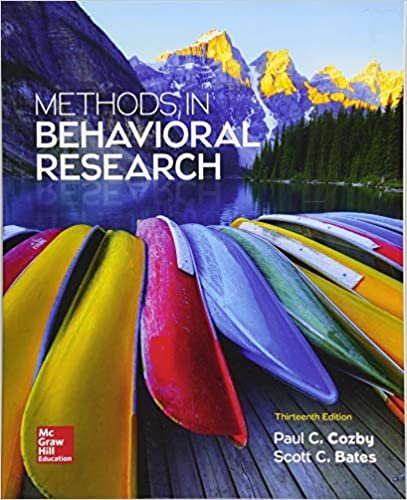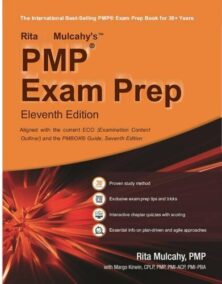Methods in Behavioral Research 13th Edition by Paul Cozby, ISBN-13: 978-1259676987
$14.99
- Author(s): Paul C. Cozby, Scott C. Bates
- Format: PDF
- Size: 14 MB
- Publisher: McGraw-Hill Education; 13th edition (September 28, 2017)
- Language: English
- 448 pages
- ISBN-10: 1259676986
- ISBN-13: 978-1259676987
Methods in Behavioral Research continues to guide students toward success by helping them study smarter and more efficiently. The thirteenth edition includes new coverage of the Open Science movement and reproducibility as it relates to designing, conducting, and evaluating behavioral science. The chapter “Observational Methods” discusses the Open Science movement in relation to conducting archival research and making data publicly available to encourage replication. “Generalization” grapples with the current issue of reproducibility in behavioral science.
The organization of Methods in Behavioral Research generally follows the sequence involved in planning and conducting a research investigation. “Scientific Understanding of Behavior” gives an overview of the scientific approach to knowledge and distinguishes between basic and applied research. Where to Start discusses sources of ideas for research and the importance of library research. “Ethics in Behavioral Research” focuses on research ethics; ethical issues are covered in depth here and emphasized throughout the book. “Fundamental Research Issues” introduces validity and examines psychological variables and the distinction between experimental and nonexperimental approaches to studying relationships among variables. “Measurement Concepts” focuses on measurement issues, including reliability and validity. Nonexperimental research approaches—including naturalistic observation, cases studies, and content analysis—are described in “Observational Methods.” “Asking People About Themselves: Survey Research” covers sampling as well as the design of questionnaires and interviews. “Experimental Design and Conducting Experiments” present the basics of designing and conducting experiments. Factorial designs are emphasized in “Complex Experimental Designs”. “Single-Case, Quasi-Experimental, and Developmental Research” discusses the designs for special applications: single-case experimental designs, developmental research designs, and quasi-experimental designs. “Understanding Research Results: Description and Correlation” and “Understanding Research Results: Statistical Inference” focus on the use of statistics to help students understand research results. These chapters include material on effect size and confidence intervals. Finally, “Generalization” discusses generalization issues, meta-analyses, and the importance of replications.
Appendixes on communicating research findings, ethical standards, and conducting statistical analyses are included as well. Appendix A presents a thorough treatment of current APA style plus an example of an actual published paper as illustration. The APA Ethics Code is included in Appendix B as a resource rather than a section of the chapter on research ethics. Appendix C provides examples of formulas and calculations to help students conduct and present their own research.
Paul C. Cozby is Professor of Psychology at California State University, Fullerton, and Northcentral University. Dr. Cozby was an undergraduate at the University of California, Riverside, and received his Ph.D. in psychology from the University of Minnesota. He is a fellow of the American Psychological Association, member of the Association for Psychological Science, and has served as officer of the Society for Computers in Psychology. He is Executive Officer of the Western Psychological Association. He is the author of Using Computers in the Behavioral Sciences and co-editor with Daniel Perlman of Social Psychology.
































Reviews
There are no reviews yet.